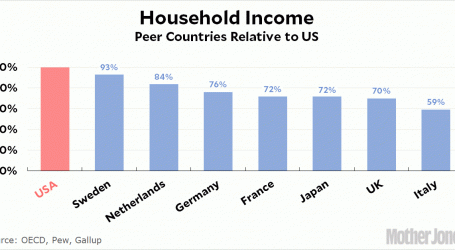Anti-public school billionaire to be confirmed despite attempts to block
WASHINGTON (AP) — The Senate was poised on Tuesday to confirm President Donald Trump’s nominee for education secretary by the narrowest possible margin, with Vice President Mike Pence expected to break a 50-50 tie, despite a last-ditch effort by Democrats to sink the nomination.
The vote was expected after an all-night speaking marathon by Democrats on the Senate floor, in a show of opposition to the candidacy of Betsy DeVos. She is a wealthy GOP donor who has devoted herself to promoting charter schools and private school vouchers, sparking concerns among educators that she won’t be a strong champion for the nation’s public school systems.
Two GOP senators, Susan Collins of Maine and Lisa Murkowski of Alaska, have announced plans to oppose DeVos in a Senate split 52-48 between Republicans and Democrats. That will leave her with a tie vote if all other Republicans support her and all Democrats oppose her as expected, and will require Pence to put her over the top. A vice president breaking a tie on a Cabinet nomination would be a first in the history of the Senate, according to the Senate historian’s office.
Sen. Jeff Merkley of Oregon took the Senate floor before dawn to urge his Republican colleagues to oppose DeVos. Merkley charged that DeVos will seek to turn public education into another huge corporation and deprive students from low-income families and children with disabilities and special needs from thriving.
“That’s the vision we are fighting for that is about to be deeply damaged, should the reins of public education be handed over to an individual who wants to destroy public education,” Merkley said. “That is why I am encouraging my colleagues to search your hearts, step aside from party politics and pay to play in politics and fight for the children of the united states of America.”
Emotions ran high ahead of the vote as constituents jammed senators’ phone lines with calls and protesters gathered outside the Capitol, including one person in a grizzly bear costume to ridicule DeVos’ comment during her confirmation hearing that some schools might want guns to protect against grizzlies. Her opponents also charge that DeVos has no experience to run public schools, having never attended one or sent her children to a public school.
But Republicans accused Democrats of slow-walking DeVos and other qualified nominees to placate liberal base voters who still haven’t come to terms with Trump’s election.
“It seems this gridlock and opposition has far less to do with the nominees actually before us than the man who nominated them,” said Senate Majority Leader Mitch McConnell, R-Ky. “Enough is enough.”
In addition to DeVos, Republicans hope to confirm a series of other divisive nominees this week: Alabama Republican Sen. Jeff Sessions as attorney general, GOP Rep. Tom Price of Georgia as health secretary and financier Steven Mnuchin as treasury secretary.
In each case Democrats intend to use the maximum time allowed under the Senate’s arcane rules to debate the nominations, which may result in a late-night votes this week and delay Mnuchin’s approval until Saturday.
Republicans complain that previous presidents have been able to put their Cabinets in place more quickly. Democrats say it’s Trump’s fault because many of his nominees have complicated financial arrangements and ethical entanglements they claim they have not had enough time to dissect. Thus far, six Cabinet and high-level officials have been confirmed, including the secretaries of state, defense, homeland security and transportation.
The clash over nominees has created a toxic atmosphere in the Senate that mirrors the tense national mood since Trump’s election, with Democrats boycotting committee votes and Republicans unilaterally jamming nominees through committee without Democrats present. Yet there is little suspense about the final outcome on any of the nominees because Democrats themselves changed Senate rules when they were in the majority several years ago so that Cabinet nominees can now be approved with a simple majority, not the 60 votes previously required.




